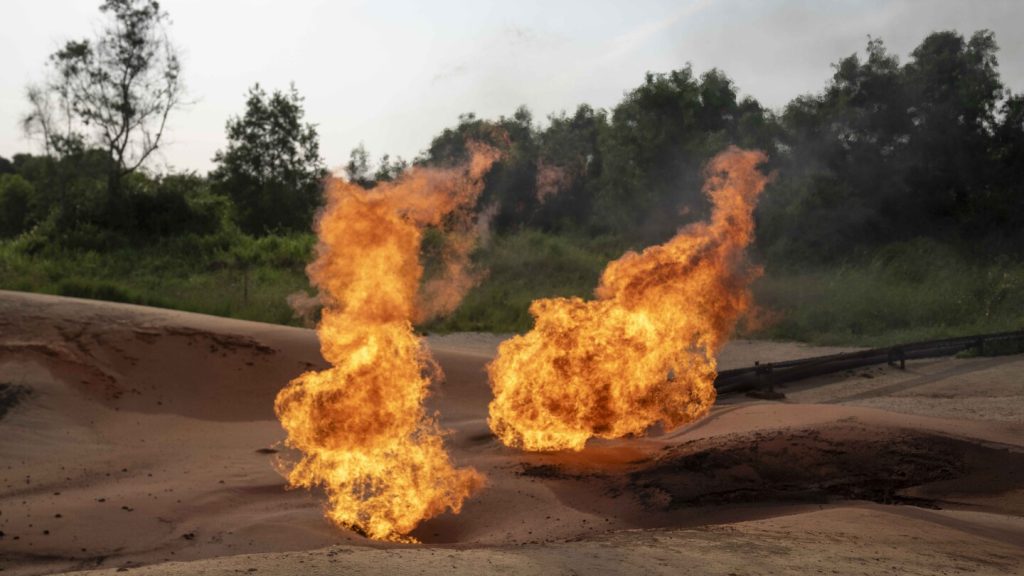The cancellation of the auction for 27 oil exploration sites in Congo has raised concerns about the potential environmental impact. The government cited late submissions and a lack of competition as reasons for halting the auction, which was initially launched two years ago. The decision to cancel the auction comes as a disappointment, as the sites are estimated to hold around 22 billion barrels of oil. Congo, a mineral-rich nation in central Africa, is believed to have significant oil reserves, but drilling has been limited to a small territory on the Atlantic Ocean and offshore.
Environmental agencies have expressed alarm since Congo first announced the auction in July 2022, warning of potential negative consequences both within the country and abroad. Congo is home to most of the Congo Basin rainforest, the world’s second-largest, and most of the world’s largest tropical peatland, which together absorb large amounts of carbon dioxide. More than a dozen of the plots up for auction overlap with protected areas in peatlands and rainforests, including the Virunga National Park, which is home to rare gorillas.
The cancellation of the auction highlights the delicate balance between economic development and environmental conservation that many countries, including Congo, face. The potential exploitation of oil resources could bring much-needed revenue to the country, but it also poses a threat to vital ecosystems and endangered species. As the government considers holding a new auction in the future, it will be crucial to weigh the economic benefits against the environmental costs and ensure that strict regulations are in place to protect sensitive areas.
The decision to cancel the oil exploration auction underscores the growing global concern over the impact of fossil fuel extraction on the environment. With climate change becoming an increasingly urgent issue, countries around the world are facing pressure to transition to renewable energy sources and reduce their reliance on oil and gas. Congo’s cancellation of the auction for oil blocks is a sign that environmental considerations are being taken more seriously, and it reflects a growing awareness of the need to protect natural habitats and reduce carbon emissions.
The cancellation of the auction is likely to have economic repercussions for Congo, as the potential revenue from oil exploration could have provided a much-needed boost to the country’s economy. However, the decision also sends a strong message that environmental conservation must be prioritized, even in the face of economic interests. As the government reevaluates its approach to oil exploration, there is an opportunity to develop a more sustainable and environmentally-friendly energy strategy that balances economic growth with conservation efforts.
Moving forward, it will be important for Congo to engage with environmental experts, local communities, and other stakeholders to develop a comprehensive plan that considers the long-term impact of oil exploration on the environment and local populations. By fostering dialogue and collaboration, Congo can work towards a more sustainable future that protects its natural resources while also promoting economic development. The cancellation of the auction for oil exploration sites may be a setback, but it also presents an opportunity for Congo to reevaluate its priorities and align its energy policies with environmental protection and conservation goals.















